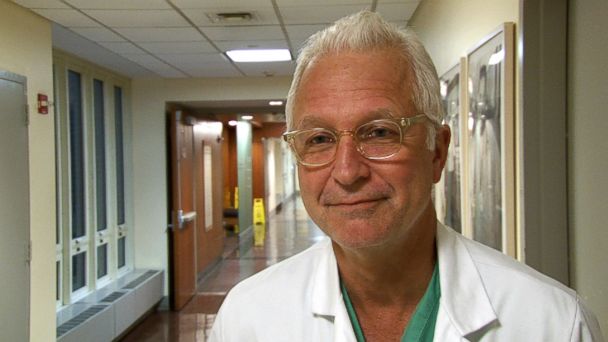How 'NY Med' Neurosurgeon Prepares Patients for 'New Me'

Philip Stieg is a professor and chairman of the Department of Neurological Surgery at Weill Cornell Medical College and neurosurgeon-in-chief at NewYork-Presbyterian Hospital. (Image credit: NYMed/ABC)
By Philip Stieg, PhD, MD
As chief of neurosurgery at a major teaching hospital, I am used to being observed - I always have students and residents watching me. Teaching is something I love to do, and nothing is more rewarding than mentoring the next generation of talented surgeons.
I am also very accustomed to observing others, not only when I'm overseeing the work of my students, residents, and young neurosurgeons, but also when I'm talking with my patients and their families. I need to evaluate their physical health, of course, but I also need to develop an understanding of who they are, and how they are likely to respond to surgery.
Brain surgery is completely different than any other kind of surgery. We are invading the very core of an individual's being, so the risks are magnified far beyond those of other procedures. That means that the conversations I have with patients are incredibly challenging. I need to be absolutely sure that they understand the benefits they will receive by having surgery, along with the risks that go along with any neurosurgical procedure.
I often find myself explaining that the "me" the patient experiences before surgery may not be the same as the "me" after surgery. There are risks of cognitive and personality changes inherent in any brain surgery that can be wrenching and bewildering if the patient has not been well prepared. And as you can imagine, for some people this is a very profound existential dilemma. It can also be confusing for family and friends to navigate. How will they interact with this "new me" who emerges?
That's why our role as neurosurgeons goes far beyond our skill in the operating room. It's about the relationships with our patients and doing everything in our power to make their lives as productive as possible. Getting my patients back to their daily lives is what keeps me energized and excited about the work I do.
It was certainly an honor to be chosen to participate in ABC's "NY Med" because it allowed me to share some of the intricacies of what I do. Some people might think it would be distracting for a neurosurgeon to be followed by cameras, but it wasn't. I am accustomed to staying laser-focused on what I do, regardless of what's going on around me, and I was happy to be able to show what we do every day on the front lines of neurosurgery.
Philip Stieg, PhD, MD is the Professor and Chairman of the Department of Neurological Surgery at Weill Cornell Medical College and Neurosurgeon-in-Chief at New York-Presbyterian Hospital.